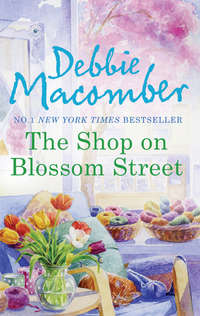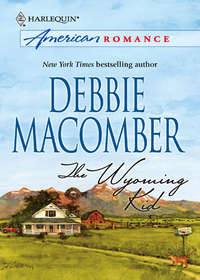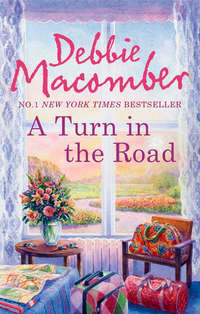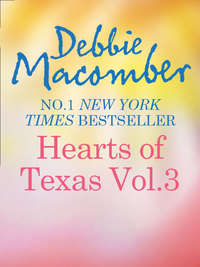
Полная версия
No Place Like Home
As for the hair business, I’ll admit men aren’t much better. Seems a lot of them prefer to wear it long—like back in the sixties, hippies and all. But I never thought I’d see grown men—gray-haired geezers, for Pete’s sake!—wearing ponytails. Even worse—what do you call them?—those pigtails. Far as I’m concerned Willie Nelson’s got a lot to answer for.
It isn’t just the way people do their hair, either. More and more strange things are going on in Sweetgrass. A man doesn’t know who to trust any longer. People talk as if the government was the enemy. I didn’t fight in a world war to hear that kind of crazy talk, but then folks around here never have been keen for my opinion. I give it to them, anyway, whether they want to hear it or not.
The weather’s been good and bad. Winter hasn’t been too hard so far—only one blizzard.
The chickens are laying more eggs than I can use, which means they’re content. There’s nothing better than bacon and eggs for breakfast. I hope you’re feeding the boys a decent breakfast every morning and not that sugar-coated junk.
Now about you. It sounds like Daniel finally got what he’s deserved all along. Imagine cheating those decent folks out of their hard-earned cash! I never did understand why you married that smooth talker. I knew the minute I met him he wasn’t any good. If you’d asked me before you were foolish enough to go through with the wedding, you might have saved yourself a lot of trouble. Well, at least you have your boys, so something good came out of the marriage.
You’re my only grandchild, Molly, and you’re all I have left. You know that. I remember the day you were born and your father called to say Joan had given birth to a girl. Your grandmother wept when she learned your parents decided to name you after her. They must have known something even then, because small as you were, you resembled my Molly, and you do so more every year. She was a beautiful woman, and you are, too.
I wish your marriage had been like ours. It was the best thing in my life, Molly. I’m glad you’re rid of that no-good Daniel, but I wish you’d marry again. Though I suppose that subject’s best saved for another day.
I want to talk to you about something else. I recently celebrated my seventy-sixth birthday, so I decided it was time I got my affairs in order. I had a new will drawn up. When I was in town last week, I stopped off and talked to Russell Letson. He’s an attorney who’s been around awhile, and his father and I used to be friends. I like Russell well enough, even though I suspect most attorneys are shysters. Anyway, I brought in my old will, and Russell and I talked a bit and he asked me a bunch of questions that got me to thinking.
There’s certain things you should know. First off, I’ve got a safe-deposit box at the bank. I put some medals in there from the war. When the time is right and they appreciate that sort of thing, you can give those medals to my great-grandsons. I suppose I should put your grandmother’s wedding band in there, but I never could bring myself to part with it. I got it on the nightstand next to the bed. Nine years she’s been gone, and I still miss her.
The ranch will be yours. I wish you’d moved here after Molly died, but I understood why you decided to return to California. For myself, I don’t know how you can breathe that foul air—I’ve seen what San Francisco’s like, on television. It can’t be good for the boys to be taking in all that smog. I’m hoping that after I’m gone you’ll give Sweetgrass another try. Folks here are hardworking and decent. Most years, the ranch should at least break even. And the house is solid. My father built it in 1909, and after he died, Molly and I added electricity and indoor plumbing. As houses go, it isn’t fancy, but it’s stood all these years and will stand longer.
That pretty well takes care of what I wanted to tell you.
I love you, Molly girl, and those youngsters of yours, too. I’m sure you know that, although I’m not one to say it often. This letter seemed like a good time to do it.
Remember—don’t let Daniel give you any more grief. He’s getting what he deserves.
Gramps
Molly read the letter a second time and then a third. It all made sense now.
According to what the foreman had told her, Gramps must have written it two months after he got the pacemaker. Her beloved grandfather hadn’t said one word about his health problems, and she knew why.
Daniel.
Gramps hadn’t wanted to burden her with more worries while she dealt with the publicity and embarrassment of Daniel’s trial.
Gramps was right about Daniel; a prison term was exactly what he deserved. As an investment specialist he’d been regularly stealing retirement income from his elderly clients. He’d been clever about it, concocting schemes and falsifying numbers; it had taken several accountants and finance specialists almost a year to uncover the full extent of his crimes. Throughout his entire so-called career, he’d been cheating the very people he was supposed to be helping. He’d lied to his colleagues and clients, lied to the police and the press. He’d even been caught lying under oath. His trial had lasted for weeks, with mobs of angry senior citizens packing the courtroom demanding justice. They didn’t get their money back, but they were there to see Daniel sentenced to twenty years.
Because Molly had been so distressed by what was happening to all these people who, like her, had once trusted Daniel, she hadn’t paid enough attention to some of the remarks in Gramps’s letter. She’d read and reread his words for the comfort they gave her, for the way they brought him close, but she hadn’t stopped to question his sudden interest in a will and settling his affairs. Hadn’t recognized that he was preparing her for his death. It seemed obvious now that he didn’t expect to live much longer.
Besides this letter, she could remember only one other time Gramps had told her he loved her—the day they buried her grandmother. She had no doubt of his love; he said it loud and clear, but rarely with words. Open displays of emotion embarrassed him, as they did many other men, particularly men of his generation.
This letter wasn’t the first time he’d commented on her marrying again. That theme had been a constant one since the divorce. The ink hadn’t dried on the legal papers, and Gramps was already trying to introduce her to the bachelor ranchers in the area.
The thought of another relationship still sent chills up Molly’s spine. As she liked to tell her friends, she’d done the marriage thing and wasn’t interested in repeating it.
Tucking the letter back in the envelope, she lay down, not expecting to sleep. But she must have drifted off because the next thing she knew, the alarm was buzzing. Gramps’s letter was clutched in her hand, held close to her heart.
It was clear to her then. So clear she should’ve figured it out months ago. The answer had always been there, but she’d been too blind, too stubborn, too willful to see it. It’d taken nearly losing her grandfather to show her what she had to do.
* * *
The small conference room off the principal’s office was the last place Tom wanted to be. Referred to as “the holding cell” at Ewell Junior High, the room was cold even during the hottest weather, and it had an unpleasant odor that reminded him of a dentist’s office.
Eddie Ries sat in the hard wooden chair beside him. Eddie’s mother was on her way to the school. Tom hadn’t heard when his own mother would arrive. All he knew was that when she did, she wouldn’t be happy.
Suspended for three days. That was supposed to be punishment? Tom almost laughed out loud. Time away from classes was practically a reward for screwing up! Personally Tom was sick of school. Sick of a lot of things he couldn’t change. His no-good dad for one, and the way the kids had looked at him when they learned the guy in the news was his father. He was sick of feeling helpless and frustrated—which was why he’d become involved in something he’d never thought he would.
He wasn’t friends with Eddie. Didn’t even like him. Eddie went searching for trouble; it made him feel big. Made him look like somebody to the homies. A big man on campus when in reality he’d never fit in. Tom wasn’t sure he did anymore, either; maybe that was what had made him do something so stupid.
While he didn’t regret the suspension, Tom hated adding to his mother’s worries. He could see how this news about his great-grandfather’s health had depressed her. All through dinner the night before, she’d barely said a word; she hadn’t eaten much, either.
Tom hadn’t had much of an appetite himself. He couldn’t stop thinking about Gramps. He wasn’t sure if he remembered the old man or not, but he let Clay think he did, mainly because he was the oldest and should remember. Clay had been a baby that time they were in Montana.
On his twelfth birthday—and the two birthdays after that—Tom had gotten a personal letter from Gramps and a check for twenty bucks. Before that, Gramps had always mailed his mother money and then she’d go shopping and pick something out for him. These last birthdays, the check was made out to him.
In his first letter Gramps had said a boy of twelve was old enough to know what he wanted. Old enough to go out and buy it, too. Tom never forgot the feeling that had come over him with that letter. For the first time in his life he’d felt like a man. He might not remember what Gramps looked like, but Tom loved him the same way his mother did.
His mother was worried. She worried about a lot of things. Tom could always tell when problems got her down. Work, his father, money. Now Gramps. Over the years, he’d come to recognize the symptoms. She’d grow quiet and then three small vertical lines would form in the center of her forehead. It hurt to see those lines and know there wasn’t a damn thing he could do to help her. Those were the times he went to his room, put on his earphones and played music so loud his head pounded afterward. The music helped him not to think, because when he did, his stomach ached.
Tom wanted to help his mother. When he was a kid, he’d planned to become a magician and make all the bad things in life disappear with one flamboyant wave of a wand. He used to imagine doing that sometimes. With a flick of his wrist every problem would magically disappear.
The door to the conference room burst open, and Tom sat up straighter as his mother stormed in, her eyes blazing with anger.
Tom lowered his own eyes. He toyed with the idea of greeting her, then decided against it. She didn’t look like she was all that happy to see him.
“Gang symbols, Tom?” she said through clenched teeth, hands on her hips. “You painted gang symbols on the gym wall?”
“Outside wall,” he corrected, and regretted it immediately.
“Do you think it matters which wall?” she asked in a tone that told him the three-day suspension from school was the least of his worries.
Mr. Boone, the principal, walked briskly into the room, looking far too satisfied with himself—like he’d accomplished what he’d set out to do. Tom had never had strong feelings about the man, but he was inclined to dislike him now—simply for the smug way he smiled, knowing Tom was in major trouble at home.
“As I explained earlier, Mrs. Cogan,” the principal said, “this school has a zero-tolerance policy with regard to gang activities. While I don’t really believe Tom’s involved in a gang, there are plenty of wannabes. I’d like to believe Tom’s smarter than that, but after today I’m not sure.”
“Get your things, Tom. I’m taking you home,” his mother instructed. He could tell from her voice that said she had plenty more to say later.
Nevertheless, Tom nearly leaped off the chair in his eagerness to escape. He grabbed his jacket and followed his mother outside.
“Of all the stupid brainless things for you to do,” she said as they headed out to the parking lot. Her steps were so fast he had trouble keeping up.
Yeah, well, he wasn’t especially proud of himself, either.
They climbed in the car and he thought she was going to take rubber off the tires the way she squealed across the lot. She missed the Stop sign and zoomed into the street, almost hitting another car.
“Mom!” Tom shouted, holding on to the edge of the seat as he was thrown against the passenger door. “It’s not a good idea for you to drive when you’re this mad.”
“Mad isn’t the half of it.”
“Okay, okay, so I made a mistake.”
“A mistake? Gangs, Tom?”
“I’m not in any gang!”
She tossed him a look that assured him she knew otherwise. “Then why spray-paint their symbols?” Without inhaling she added, “You’re going to repaint that wall all by yourself, young man.”
“Hey, I wasn’t the only one who painted it.” Talk about unfair!
“You’re going back to school first thing tomorrow morning to do it.”
“What about Eddie?”
His mother sent him a sidelong glance sharp enough to cut glass. “I don’t have any say over him, but I have all kinds of say over you.”
She liked to think she did. But this didn’t seem the appropriate time to discuss it. “According to what Mr. Boone said, I’m not supposed to be on school property,” he told her. One of them had to keep a cool head, and it was obvious his mother had already lost hers.
“Don’t concern yourself—I already asked Mr. Boone and he’s willing to make an exception.”
“That isn’t fair! How come I have to come back and paint the wall? Eddie should be there, too.” The anger was brewing inside him, and he tightened his jaw, knowing it would do neither of them any good to vent it now.
“Eddie’s parents can see to his punishment.”
Which meant Eddie was off the hook. Eddie’s mother drank too much, and even Eddie didn’t know where his father was. Tom certainly knew the whereabouts of his own father—and so did everyone else.
“Can’t I paint the wall after the suspension?” he asked, thinking he’d prefer to do it during the weekend. Having the entire school watch him suffer such humiliation held little appeal.
“No,” came her emphatic reply.
“Why not?” he demanded, clenching his fists.
“Because I need you for other things.”
“What things?”
“Packing.”
That captured Tom’s attention. He waited a moment, then asked, “Are we going somewhere?”
“Montana.”
His heart nearly burst with excitement. She’d found a way. His mother was taking them to Montana. This was good news, better than anything he’d anticipated. “We’re visiting Gramps?”
She didn’t answer him right away. Tom watched as her hands tensed on the steering wheel. “Not exactly. I handed in my two weeks’ notice this morning. We’re moving.”
Two
Sam Dakota bolted upright out of a sound sleep. His heart slammed against his rib cage with a punch almost powerful enough to hurt. Cold sweat dampened his forehead and clung to his bare chest. One ragged breath followed another as his body heaved in a near-desperate effort to drag oxygen into his burning lungs.
The dream always woke him. Whenever he had it, he would feel that panic again, the fear as vivid and real as the first day the prison door had clanged shut behind him. It had echoed against the concrete walls, reverberating in his ears. Twenty-four months into freedom, and he still heard that terrible sound. It invaded his sleep, tortured him, reminded him constantly that he was a living, breathing failure. Thankfully he didn’t have the dream often anymore—not since he’d started working for old man Wheaton.
Closing his eyes, Sam lay back down, his head nestled in the feather pillow. He swallowed and flexed his hands, trying to ease the tension from his body, forcing himself to relax.
It was over. Over.
Prison was behind him, and so was the life he used to live. Yet at one time he’d been a rodeo star, riding bulls, flirting with fame. Fame and women. He’d had his own following, groupies who chased after him. They stroked his ego, cheered for him, drank with him, slept with him and, on more than one occasion, fought over him.
The groupies were gone, the way everything that had once been important to him was gone. In his rodeo career and after his accident, he’d faced danger, injury, death, and he’d done it without a trace of fear.
Riding the wave of success, he’d achieved everything he’d ever wanted. That was at the rodeo championships in Vegas, six years earlier. But the silver buckle that proclaimed him the best of the best had been pawned to help an old man hold on to his ranch. These days Sam stayed out of trouble, kept his nose clean, minded his own business. When the urge hit him, he moved on.
Sam didn’t like to dwell on his rodeo days. That was all in the past, finished. The doctors had warned him of the risks of ever competing again. Another fall like the one that had ended his career could cripple him for life. Or kill him. It was that simple. The money, what little of it he’d managed to save, had been swallowed whole by doctor and hospital bills.
Friends had stuck by him for a time, but he’d driven them away with his anger and frustration. Even his parents didn’t know his whereabouts, which was just as well. Pride had prevented him from ever letting them know he’d landed in a Washington-state prison for second-degree assault. After two years of silence it hadn’t seemed worth his trouble to write and fabricate an account of where he’d been and why he’d stayed away.
It’d been a few years now since his last contact with family, and as the months went on, he thought about them less and less.
Until he ended up at the Broken Arrow Ranch, Sam had drifted across three or four states, depressed, miserable and mad as hell. The restlessness inside him refused to die.
He’d lasted longer here in Sweetgrass than anywhere else.
Mostly because of the old man. Walt was as mean as a grizzly bear and as demanding as a drill sergeant, but that didn’t keep Sam from admiring him. Six months earlier Sam had arrived in this backwoods Montana town; six minutes after that he’d crossed the sheriff. He hadn’t been looking for trouble, but trouble always seemed to find him. All he’d meant to do was help a lady in a difficult situation, a lady who was being bothered by a drunk, and in the process he’d stepped on the wrong toes. It turned out the drunk was a friend of the sheriff’s. Before he knew it, the sheriff had learned about his prison record and Sam was headed for jail, charged with unlawful conduct and disturbing the peace. The other guy—the man who’d been beating up on the woman—had walked away scot-free. Then, for no reason he could understand, Walt Wheaton had stepped in, paid his bail and offered him a job. Eventually the charges were dropped, thanks to some negotiating by Walt’s attorney.
Sam could deal with just about anything. Pain, disappointment, the reversal of fortune. But he’d discovered that he was unprepared to handle kindness. It embarrassed him. Made him feel uneasy. Indebted. The only reason he’d agreed to accept the foreman’s job was that he owed the old coot. The pay wasn’t much, but Walt had given him a small house on the property, rent free. It was the original foreman’s place—run-down but livable.
The minute Sam set foot on the ranch, he realized Walt was in dire straits. The Broken Arrow was in deplorable condition. No sooner had Sam started work when a series of mysterious and seemingly unrelated events began to occur. Pranks and vandalism, nothing serious, but a nuisance all the same.
Walt was an exacting employer, but never unreasonable. Sam worked hard and at the end of every day he felt good, better than he had in years. Partly because there was a sense of accomplishment in restoring order to the deteriorating ranch. And partly because the old man needed him. It was as simple as that.
He’d been working for Walt about six weeks when out of the blue the old man invited him to come for dinner one night. That was the first time he’d seen the photograph of Walt’s granddaughter, Molly. Set in a gold frame on top of the television, the snapshot had caught her in what he could only describe as a natural moment. She stood with an arm around each of her sons; one of them, the younger boy, grinned up at her, while the older one half scowled. The wind tossed her hair as she smiled shyly into the camera. What Sam noticed was her eyes. He didn’t think he’d ever seen eyes that blue. He might have suspected she wore colored contacts if not for the photo of Walt and his wife. The other Molly. This Molly’s eyes were the identical shade of cobalt blue. Her hair was the same rich shade of auburn. Walt’s granddaughter was pretty, in an ordinary sort of way. Attractive but not beautiful. Sam had known plenty of women who could run circles around her in the beauty department, but he liked her picture. There was something about her that appealed to him. And he knew Walt cared deeply for her and his two great-grandsons.
Since his brief conversation with Walt’s granddaughter, Sam had found her drifting into his mind at the oddest times. Like now. Actually, it was easy enough to figure out why. He’d been celibate for too long. What he really needed was to drive into town one Friday night and let some sweet young thing take him home. But he couldn’t seem to dredge up the necessary enthusiasm.
In his rodeo days he’d enjoyed the occasional one-night stand, but over the years, he’d lost interest in sex for the sake of sex. When he crawled into bed with a woman, he didn’t want to worry about remembering her name in the morning. Besides, remembering names was a minor concern these days when it came to one’s bed partners. If he chose to self-destruct, Sam preferred to do it on the back of a bad-tempered bull, not in some bed with a lumpy mattress and a faceless woman moaning in his ear.
After that first invitation to share dinner, Walt and Sam began eating all their meals together. The old man routinely plied him with questions. Some he answered. Some he ignored. Walt depended on him, trusted him, and Sam tried to live up to the rancher’s faith in him.
The Broken Arrow was a good spread, with plenty of grass and a fine herd. If Sam ever considered settling down, it’d be on a place like this. Not that he could afford it. Some days he struggled against bitterness. If not for the accident, he might have had it all: fame, money, a good life. A demon bull had put an end to those hopes and expectations. But he’d endured.
In the process Sam had learned something about himself. He was a survivor. Fate might sucker-punch him again, only next time he’d be prepared. All he had to do was make sure he didn’t give a damn about anything–or anyone. Because if he did, he was vulnerable. It occurred to him that he was already becoming too attached to the old man, and that worried him.
By the time he’d sorted out his thoughts and calmed his raging heart, the alarm was ready to sound.
He climbed out of bed, put on a pot of coffee and dressed as the sun peeked over the Rockies, streaking the sky with translucent shafts of pink and gold. It’d become habit to check on Walt before he headed out for the day. He half expected to arrive some morning and find the old man had died in his sleep. He didn’t look forward to that, but as the rancher said, he’d lived a good life and suffered few regrets. That was the way Sam wanted it to be when his own time came.
The kitchen light was on when he stepped onto Walt’s back porch. Walt was rarely up this early anymore. With his heart as weak as it was, he spent half the day napping.
“Coffee’s ready,” Walt said when Sam let himself into the kitchen.
The old man seemed downright chipper, Sam noted, a pleasant contrast to his lethargic manner lately.
Walt gestured toward the coffeepot with his own mug.
“No thanks, I’ve already had a cup.” Sam had never been much for talk in the morning. A grunt now and then usually sufficed.
“I got a call from Molly last night.” Walt’s crooked grin took up half his face. “Looks like you’re going to meet her and the boys, after all.”
“She’s coming out?” Sam hoped to hell she was smart enough not to mention his phone call. As he’d told her, Walt wouldn’t appreciate his interference.











